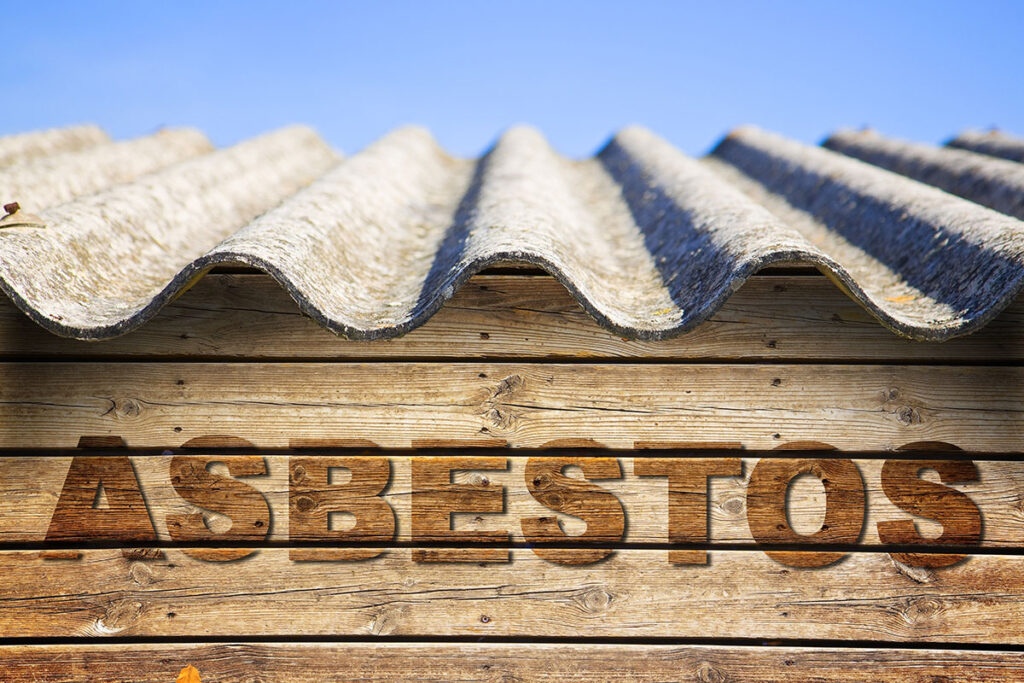VA Benefits for Veterans Exposed to Asbestos in Homes

Dangerous asbestos roof detail, one of the most dangerous materials in the construction industry so-called hidden killer - concept image with asbestos text .
Historical Use of Asbestos in Military
Asbestos was widely used in the military from the 1930s to the 1980s. Its heat-resistant properties made it a popular choice for various applications, including:
- Insulation for ships and buildings
- Fireproofing materials
- Brake linings and gaskets
This extensive use put many service members at risk of exposure.
Common Locations of Asbestos Exposure
Veterans could encounter asbestos in several places, such as:
- Navy ships and submarines
- Military bases and barracks
- Aircraft and vehicles
- Maintenance and repair facilities
These environments often contained materials that released asbestos fibers into the air.
Health Risks Associated with Asbestos
Exposure to asbestos can lead to serious health issues, including:
- Asbestosis: A chronic lung disease caused by inhaling asbestos fibers.
- Mesothelioma: A rare cancer primarily affecting the lining of the lungs.
- Lung cancer: Increased risk for those exposed to asbestos.
- Other cancers: Including cancers of the larynx and gastrointestinal tract.
Veterans should be aware of these risks, especially if they served in roles with high exposure.
Eligibility Criteria for VA Benefits
Veterans seeking benefits related to asbestos exposure must meet specific criteria set by the VA. Understanding these requirements is crucial for a successful claim.
Service Connection Requirements
To qualify for VA benefits, veterans must demonstrate a connection between their military service and asbestos exposure. Key points include:
- Discharge Status: Veterans must have an honorable discharge from active military service.
- Exposure Evidence: Documentation showing exposure to asbestos during service is essential.
Documentation Needed for Claims
When filing a claim, veterans should prepare the following documents:
- Medical Records: A doctor’s statement confirming that asbestos exposure caused a recognized illness.
- Service Records: Evidence of military service, including job ratings and locations where exposure occurred.
- Exposure Summary: A detailed account of asbestos exposure during military service.
Types of Asbestos-Related Diseases
The VA recognizes several diseases linked to asbestos exposure. These include:
- Mesothelioma: A severe cancer directly associated with asbestos.
- Asbestosis: A chronic lung condition caused by asbestos fibers.
- Other Cancers: Various cancers related to asbestos exposure, such as lung and gastrointestinal cancers.
Veterans should be aware that asbestos used in the military has been linked to serious health risks, making it vital to understand the eligibility criteria for VA benefits. By gathering the necessary documentation and proving the connection between their service and exposure, veterans can navigate the claims process more effectively.
Types of VA Benefits Available for Veterans
Veterans exposed to asbestos may qualify for various benefits through the VA. These benefits are designed to assist veterans who have developed health issues due to their exposure. Below are the main types of benefits available:
Disability Compensation Overview
Veterans diagnosed with asbestos-related diseases, such as mesothelioma, can receive disability compensation. This compensation is tax-free and is based on the severity of the disability. The VA typically assigns a 100% disability rating for severe cases, which translates to significant monthly payments.
Healthcare Services for Asbestos-Related Illnesses
Veterans can access comprehensive healthcare services through the VA for conditions linked to asbestos exposure. This includes treatment at specialized VA hospitals where experts in asbestos-related diseases provide care. Veterans may also receive reimbursement for travel expenses incurred while seeking treatment.
Special Monthly Compensation Options
For veterans who require additional assistance due to their condition, the VA offers special monthly compensation. This includes benefits for those who need help with daily activities or are largely confined to their homes. Veterans may qualify for Aid and Attendance or Housebound benefits, which provide extra financial support to cover caregiving costs or in-home care needs.
Filing a VA Claim for Asbestos-Related Illnesses
Filing a claim for VA benefits due to asbestos-related illnesses can be a crucial step for veterans seeking assistance. Understanding the process can help ensure that veterans receive the support they need.
Step-by-Step Claim Process
- Gather Necessary Documentation: Veterans must collect all relevant documents, including medical records that confirm an asbestos-related illness, proof of military service, and evidence of asbestos exposure during service.
- Complete the Application: Fill out VA Form 21-526EZ, which is the application for disability compensation and related benefits. This form can be submitted online or in person at a VA regional office.
- Submit the Claim: Once the application is complete, submit it to the VA. This can be done online, through a Veterans Service Organization (VSO), or by visiting a VA office.
- Await Decision: After submission, the VA will review the claim. This process can take several months, so patience is essential.
- Receive Notification: The VA will send a letter detailing the decision on the claim, including any benefits awarded.
Common Challenges in Filing Claims
- Proving Exposure: Veterans must demonstrate that their asbestos exposure occurred during military service, which can sometimes be difficult.
- Gathering Medical Evidence: Obtaining medical documentation that links the illness to asbestos exposure is crucial but can be challenging.
- Navigating the Process: The claims process can be complex, and many veterans may feel overwhelmed by the paperwork and requirements.
Importance of Medical Documentation
Medical documentation is vital in the claims process. A doctor’s report confirming the diagnosis and linking it to asbestos exposure while in the Navy is often required. This documentation helps establish the connection between military service and the illness, which is essential for a successful claim.
Support Resources for Veterans Exposed to Asbestos in Home
Veterans who have been exposed to asbestos in their homes may feel overwhelmed, but there are numerous support resources available to assist them. Understanding these resources can help veterans navigate their options effectively.
Veterans Service Organizations
Veterans can find help through various organizations dedicated to supporting them. These organizations often provide:
- Information on benefits available for asbestos-related illnesses.
- Assistance with filing claims for VA benefits.
- Networking opportunities with other veterans who have faced similar challenges.
Legal Assistance for Claims
Veterans may also seek legal help to ensure they receive the benefits they deserve. Legal assistance can include:
- Consultations with experienced attorneys who specialize in asbestos-related cases.
- Guidance on navigating the claims process, including documentation and deadlines.
- Support in pursuing additional compensation through personal injury claims against companies responsible for asbestos exposure.
Counseling and Support Groups
Mental health is just as important as physical health. Veterans can access:
- Counseling services to help cope with the emotional impact of asbestos-related diseases.
- Support groups where veterans can share their experiences and find comfort in community.
- Resources for family members to help them understand and support their loved ones.
By utilizing these resources, veterans can find the support they need during this challenging time. For more information, veterans are encouraged to visit the Mesothelioma Center, which provides valuable insights on VA benefits and legal options for those diagnosed with asbestos-related diseases.
Treatment Options for Veterans with Asbestos-Related Diseases
Accessing VA Healthcare Facilities
Veterans diagnosed with asbestos-related diseases have access to specialized care through the VA healthcare system. This includes treatment at Comprehensive Cancer Centers, which offer advanced options for managing conditions like mesothelioma. Veterans should discuss their symptoms and history of asbestos exposure with their healthcare providers to ensure they receive appropriate screenings and care.
Innovative Treatment Approaches
The VA provides various treatment methods for veterans suffering from asbestos-related illnesses. Common treatments include:
- Surgery: Often used to remove tumors or affected tissue.
- Chemotherapy: Aimed at killing cancer cells or slowing their growth.
- Radiation Therapy: Helps to shrink tumors and alleviate symptoms.
Veterans are encouraged to explore all available treatment options, including clinical trials that may offer access to cutting-edge therapies.
Importance of Early Diagnosis
Early detection of asbestos-related diseases significantly improves treatment outcomes. Veterans experiencing symptoms such as persistent cough, chest pain, or difficulty breathing should seek medical attention promptly. Regular check-ups and discussions about potential asbestos exposure can lead to timely diagnosis and intervention, ultimately enhancing the chances of successful treatment.
Veterans with mesothelioma should particularly be proactive in seeking specialized care, as early treatment can make a substantial difference in their prognosis.
In summary, veterans exposed to asbestos have various treatment options available through the VA, emphasizing the importance of early diagnosis and access to specialized care.
Navigating the VA Healthcare System
Enrollment Process for Veterans
To access VA healthcare, veterans must complete the enrollment process. Here are the steps:
- Gather Required Documents: Veterans need to collect necessary documents, such as their discharge papers and Social Security number.
- Complete the Application: Fill out the VA Form 10-10EZ, which is the application for health benefits.
- Submit the Application: This can be done online, by mail, or in person at a VA facility.
- Receive Confirmation: After processing, veterans will receive a confirmation of their enrollment status.
Understanding VA Healthcare Benefits
VA healthcare offers a range of benefits, including:
- Routine Check-ups: Regular health screenings and check-ups.
- Specialized Care: Access to specialists for conditions related to military service, including asbestos-related diseases.
- Mental Health Services: Support for mental health issues, including counseling and therapy.
- Prescription Medications: Coverage for necessary medications prescribed by VA doctors.
Special Programs for Asbestos-Related Conditions
Veterans exposed to asbestos may qualify for special programs, such as:
- Compensation for Asbestos-Related Illnesses: Financial support for veterans diagnosed with conditions like mesothelioma.
- Enhanced Healthcare Services: Access to specialized treatment programs tailored for asbestos-related diseases.
- Support Groups: Opportunities to connect with other veterans facing similar health challenges.





